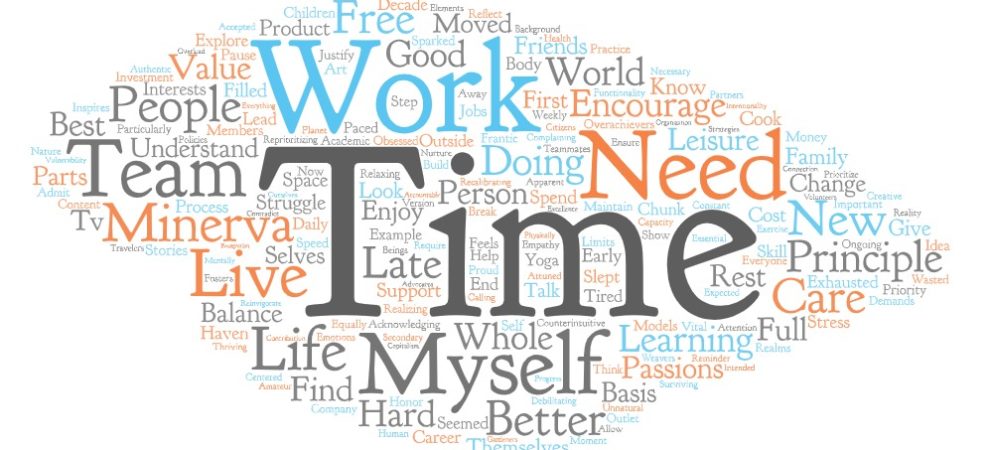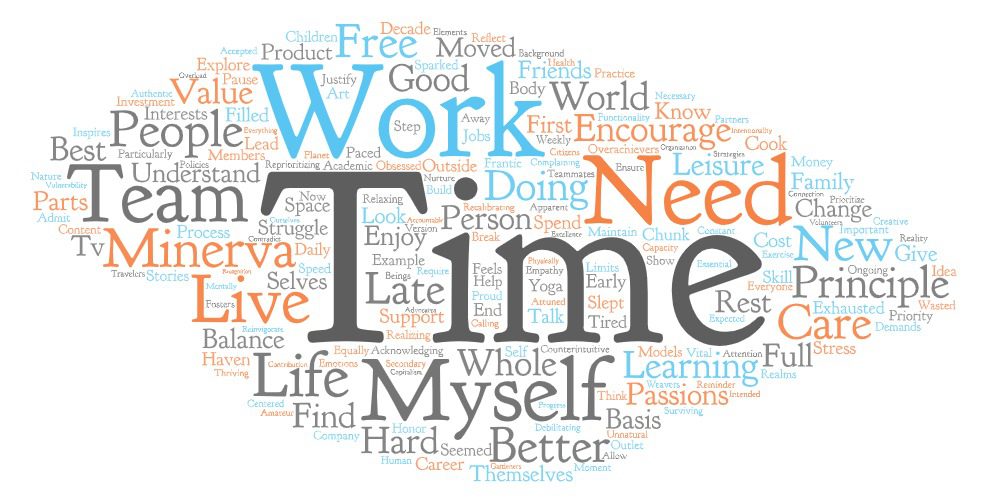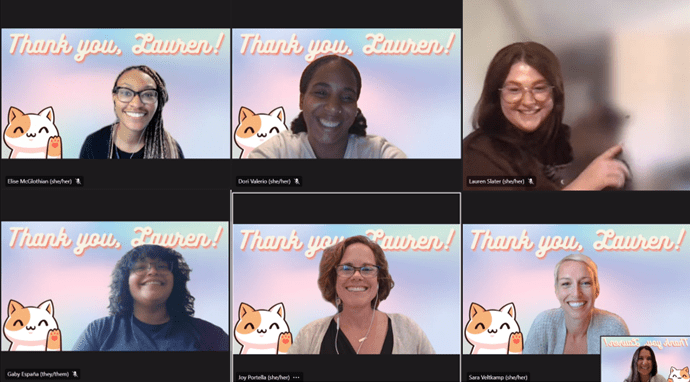
Principles: Make time for yourself
“How do people manage to do this every day?” This is a question I asked myself last year after a long day of work. When you’re starting a career, there can be a lot of internal and external pressure to perform at high levels at all times. I would find myself coming home full of anxiety and resentment. I wasn’t frustrated with my actual job; instead, I felt frustrated that I wasn’t always “on” like my coworkers.
That is until I started my internship with Minerva Strategies in January. It felt like I stepped into a different world full of new perspectives and shared values. I realized burnout wasn’t unique to me but that many of my colleagues also struggled with it from time to time.
When I asked the team to describe their relationship with the Minerva principle of “Making Time for Yourself,” a common theme arose: Everyone saw themselves as “whole people” with lives and relationships outside of work. That means caring for yourself and learning to listen to your body’s needs. These reflections highlight Minerva’s commitment to pushing back against burnout culture, and it begins with Minerva’s president. “I swore that if I ever started my own company, I’d encourage folks to take care of themselves—to really do it and not just talk about it,” said Joy Portella, who started Minerva Strategies ten years ago.

Minerva champions self-care, and that has completely changed the way we work. As Minerva’s vice president Sara Veltkamp explained: “Capitalism tells us that ‘doing work’ is what gives us value—but Minerva’s principle is intended to contradict that.”
If you’re anything like me, you may not know what strategies are effective at preventing burnout. The team shared a few tips on how they prioritize the Minerva principle of “Making Time for Yourself.”
- Check-in with yourself: For many, the first step in preventing burnout is to check in with yourself regularly. The early stages of being overwhelmed can look different for everyone. For Sara, the first sign that something needs to change is when she notices resentment. “Resentment has a very specific feel in my body—it feels like boundaries being crossed,” she explained. Listening to your body can help you understand the physical and mental symptoms of burnout.
- Know when to take a break: Associate Dori Valerio and senior associate Gaby España are mastering the art of taking breaks and moving with intention. “I fill my days with moments of pause and joy. I do not start work until after I go for a morning walk with my dog and stretch,” Gaby told me. Sometimes, preventing stress can look like calling it a day as soon as you feel overwhelmed. Dori does this by checking out of work early, enjoying a beautiful meal with her family, and doing nothing else. Dori says, “there is something deeply therapeutic about doing absolutely nothing when there is so much to do.” Regardless of how you spend your time, recognizing when it’s time to step away from work is essential in combating burnout and making time for yourself.
- Practice setting boundaries: Setting boundaries can be difficult for those of us who have been conditioned to think success means always being “on.” For Elise McGlothian, a senior associate, this means dedicating her Sundays to “relaxation and restoration.” This allows her to go into a new work week with a clear head. But in order to achieve that, you have to set boundaries. Elise says that might mean saying no to activities or outings with friends and family. Sometimes it’s not enough to recognize we are feeling overwhelmed; we must actively protect our energy and be transparent about our needs.
- Allow yourself to be a whole person: Burnout can be often caused by a work-life imbalance. Giving yourself permission to enjoy your personal life can make your work life more enjoyable. Kayla McMenamin, a senior associate, practices this by giving the important areas of her life 100 percent of her attention. Kayla explains, “one way I work on the balance between home and work is by reevaluating my relationship with my phone and technology and creating boundaries that help me to be present.” Another example comes from Joy, who says, “it’s important to have other meaningful things happening in your life—not meaningful like you’re solving the world’s problems but things that help and heal you.” Joy practices this strategy by ending her day during normal hours and setting aside work that can wait until the next day, “It’s not procrastination—it’s self-preservation!”
Healing happens in community. Sometimes the best remedy for preventing burnout is surrounding yourself with supportive people. Every Minerva principle is practiced in partnership, especially Making Time for Yourself. Gaby summarizes this point with “burnout intensifies when you feel like you’re doing it alone. Collaborating with my team reminds me that we’re working together, doing work we care about with passion, integrity, and innovation. I can’t burn out when I fuel my fire with good vibes and good people.”

